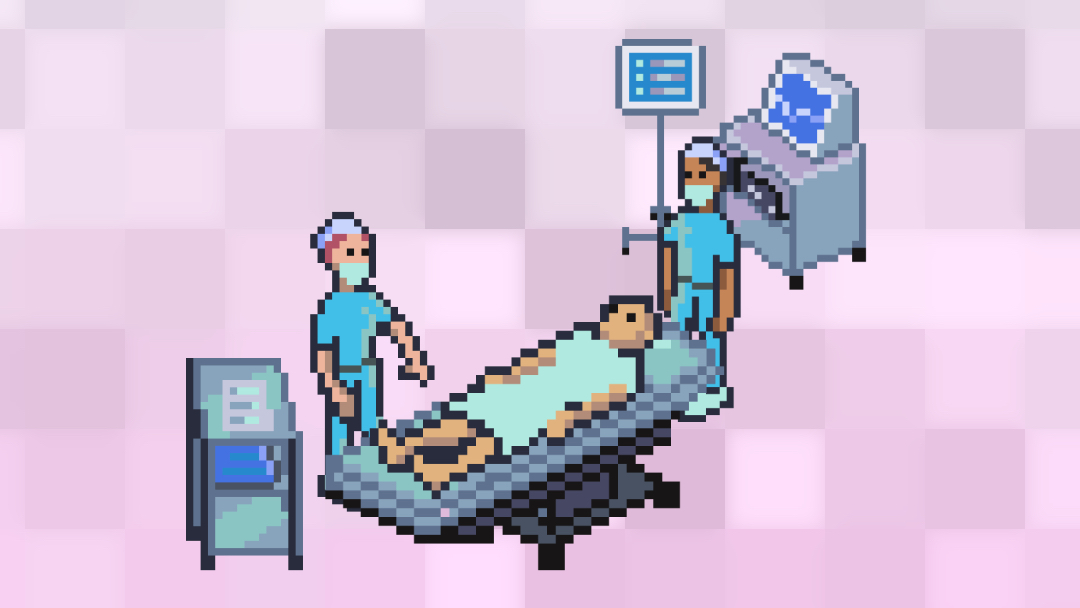- 📖 Geeky Medics OSCE Book
- ⚡ Geeky Medics Bundles
- ✨ 1300+ OSCE Stations
- ✅ OSCE Checklist PDF Booklet
- 🧠 UKMLA AKT Question Bank
- 💊 PSA Question Bank
- 💉 Clinical Skills App
- 🗂️ Flashcard Collections | OSCE, Medicine, Surgery, Anatomy
- 💬 SCA Cases for MRCGP
To be the first to know about our latest videos subscribe to our YouTube channel 🙌
Introduction
Ileus describes the slowing of bowel motility in the absence of mechanical obstruction.
Ileus is most commonly associated with abdominal surgery but can also occur with critical illness, non-abdominal surgery, electrolyte disturbances, opioid analgesia or anticholinergic use and comorbidities (e.g. diabetes mellitus, cardiovascular insufficiency and scleroderma).1
Some degree of ileus is an expected and normal physiological response after surgery. However, prolonged postoperative ileus (more than four days post-surgery) is pathological and associated with significant prolongation of hospital stay.2
Aetiology
The disruption of normal bowel motility in postoperative ileus is multi-factorial due to the impact of inflammatory, hormonal and neurogenic factors following surgery.1
Risk factors
Risk factors for postoperative ileus include:2
- Prolonged abdominal or pelvic surgery
- Lower gastrointestinal surgery
- Open surgery: associated with greater intestinal manipulation than laparoscopic
- Delayed enteral nutrition
- Intra-abdominal inflammation
- Peri-operative complications: pneumonia, intra-abdominal abscess
Clinical features
History
Typical symptoms of ileus include:
- Nausea and/or vomiting
- Abdominal distension and bloating
- Generalised mild abdominal pain
- Absolute constipation/obstipation (no flatus or stool)
Clinical examination
Typical clinical findings on abdominal examination include:
- Abdominal distension: tympanic on percussion
- Mild diffuse abdominal tenderness
- Reduced or absent bowel sounds
Differential diagnoses
Other conditions, mainly mechanical bowel obstruction, may present very similarly to postoperative ileus. It is essential to exclude differential diagnoses which require surgical management or other interventions.
Other possible differential diagnoses include:
- Bowel perforation
- Intra-abdominal abscess
- Pseudo-obstruction
- Acute pancreatitis
- Acute cholecystitis
Factors which should prompt a CT to exclude an alternative diagnosis include:
- Sudden, rather than insidious, onset of symptoms
- Moderate to severe abdominal pain
- Peritoneal signs: guarding or rigidity, percussion tenderness, pain on coughing, patient lying very still
- Fever and/or tachycardia
Investigations
Bedside investigations
Relevant bedside investigations include:
- Basic observations (vital signs)
- Fluid balance chart
- Stool chart
Laboratory investigations
Relevant laboratory investigations include:
- Full blood count: raised white cell count in infection
- Urea & electrolytes: vomiting may cause deranged renal function and electrolyte disturbance
- Magnesium: low magnesium worsens ileus
- Liver function tests & amylase: check for other non-surgical causes of ileus
Imaging
Postoperative ileus is primarily a clinical diagnosis.
However, if ileus has not resolved in three to four days, or if the clinical condition worsens, a CT (abdomen & pelvis with IV and oral contrast) should be performed to differentiate prolonged ileus and mechanical bowel obstruction or other intra-abdominal complications (e.g. anastomotic leak after colorectal surgery, intra-abdominal abscess).
Management
All patients with postoperative ileus should be made nil-by-mouth and be started on intravenous fluids. Fluid balance should be monitored closely.
A nasogastric (NG) tube should be inserted in patients with significant abdominal distension and vomiting who are at risk of aspiration. NG output should be monitored to guide fluid replacement.
Deranged electrolytes (including magnesium) may result from or be an exacerbating factor of ileus, so they should be checked regularly and replaced as indicated.
Using non-opioid analgesia and encouraging early mobilisation can improve bowel motility.
Once the ileus begins to resolve (i.e. there is passage of flatus or stool and improvement in abdominal distension and nausea), the patient can be restarted on a liquid diet and progress as tolerated.
In cases of prolonged ileus (over four days post-surgery) or when patients have not eaten for over five days, consider starting parenteral nutrition in consultation with a dietician.4
Parenteral nutrition (PN)
Parenteral feeding is the intravenous administration of nutrients, which may be used to supplement oral or tube feeding or be the only source of nutrition as total parenteral nutrition (TPN).3
Due to the risk of infection, a dedicated intravenous line/catheter is required for parenteral feeding. Central access, via a peripherally inserted central catheter (PICC) or central venous catheter (CVC), is required for nutritional support lasting more than fourteen days to reduce the risk of thrombophlebitis from peripheral administration.4
Complications of parenteral feeding include:
- Re-feeding syndrome
- Hyperglycaemia
- Liver dysfunction
- Line complications: infection, thrombophlebitis, occlusion and thromboembolism, trauma on insertion (vessel injury, pneumothorax)
Complications
The main complication of postoperative ileus is a prolonged hospital stay.2
Other complications may include:
- Delayed wound healing: associated with poor nutrition
- Aspiration pneumonia: higher risk with vomiting or gastric distension
- Deep vein thrombosis and/or pulmonary embolism: limited mobility during hospital stay
Key points
- Postoperative ileus is a normal physiological response to surgery
- Prolonged postoperative ileus, lasting more than four days post-surgery, is pathological
- Typical symptoms include nausea and vomiting, bloating, generalised abdominal pain and absolute constipation
- Typical signs include abdominal distension, mild diffuse abdominal tenderness and reduced or absent bowel sounds
- Postoperative ileus is primarily a clinical diagnosis, but if it is prolonged, CT of the abdomen and pelvis with IV and oral contrast should be performed to exclude other intra-abdominal pathology
- Management is mainly with supportive treatment, including bowel rest, intravenous fluids, electrolyte replacement, gastric decompression with an NG tube and reducing opioid analgesics
- Consider parenteral nutrition in patients unable to eat for five days
Reviewer
Mr Oddai Alkhazaaleh
Consultant General and Upper GI Surgeon
Editor
Dr Chris Jefferies
References
- BMJ Best Practice. Published in 2023. Available from: [LINK]
- UpToDate. Postoperative Ileus. Published in 2023. Available from: [LINK]
- Patient Info UK. Parenteral Feeding. Published in 2022. Available from: [LINK]
- National Institute for Health and Care Excellence (NICE). Nutrition support for adults: oral nutrition support, enteral tube feeding and parenteral nutrition. Published in 2006. Available from: [LINK]




